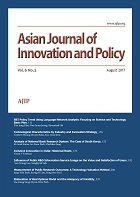The Threat of AI and Our Response: The AI Charter of Ethics in South Korea
박민혜 (한국행정연구원)
Abstract
Changes in our lives due to Artificial Intelligence (AI) are currently ongoing, and there is little refutation of the effectiveness of AI. However, there have been active discussions to minimize the side effects of AI and use it responsibly, and publishing the AI Charter of Ethics (AICE) is one result of it. This study examines how our society is responding to threats from AI that may emerge in the future by examining various AIECs in the Republic of Korea. First, we summarize seven AI threats and classify these into three categories: AI’s value judgment, malicious use of AI, and human alienation. Second, from Korea’s seven AICEs, we draw fourteen topics based on three categories: protection of social values, AI control, and fostering digital citizenship. Finally, we review them based on the seven AI threats to evaluate any gaps between the threats and our responses. The analysis indicates that Korea has not yet been able to properly respond to the threat of AI's usurpation of human occupations (jobs). In addition, although Korea’s AICEs present appropriate responses to lethal AI weapons, these provisions will be difficult to realize because the competition for AI weapons among military powers is intensifying
- keywords
- Artificial Intelligence, AI threats, AI Charter of Ethics
참고문헌
ALGORITHM WATCH. (n.d.). AI Ethics Guidelines Global Inventory Retrieved April 9, 2020 from https://algorithmwatch.org/en/project/ai-ethics-guidelines-global-inventory/.
Angwin, J., Larson, J., Mattu, S., & Kirchner, L. (2016). Machine Bias. PRO PUBLICA. Retrieved April 8, 2020 from https://www.propublica.org/article/machine-bias-risk-assessments-in-criminal-sentencing.
A Survey on the Actual Condition of Digital Difference. (2019). Korean Statistical Information Service. Retrieved from http://kosis.kr/statisticsList/statisticsListIndex.do?menuId= M_01_01&vwcd=MT_ZTITLE&parmTabId=M_01_01&parentId=I.1;I2.2;110_12017.3;#110_12017.3 (Korean).
Brundage, Miles, Avin, Shahar, Clark, Jack, … Dario. (2018). The Malicious Use of Artificial Intelligence: Forecasting, Prevention, and Mitigation. Retrieved from https://arxiv.org/abs/1802.07228v1.
Campaign to Stop Killer Robots. (2020). Campaign to Stop Killer Robots. Retrieved April 14, 2020 from https://www.stopkillerrobots.org/.
CHRISTIE’S. (2018). Is artificial intelligence set to become art’s next medium? Retrieved April 8, 2020 from https://www.christies.com/features/A-collaboration-between-two-artists-one-human-one-a-machine-9332-1.aspx?sc_lang=en.
Dastin, J. (2018). Amazon scraps secret AI recruiting tool that showed bias against women. REUTERS. Retrieved April 1, 2020 from https://uk.reuters.com/article/us-amazon-com-jobs-automation-insight/amazon-scraps-secret-ai-recruiting-tool-that-showed-bias-against-women-idUKKCN1MK08G.
Davenport, T., Guha, A., Grewal, D., & Bressgott, T. (2020). How artificial intelligence will change the future of marketing. Journal of the Academy of Marketing Science, 48(1), 24-42.
Devlin, H. (2020). AI systems claiming to ‘read’ emotions pose discrimination risks. The Guardian. Retrieved April 9, 2020 from https://www.theguardian.com/technology/ 2020/feb/16/ai-systems-claiming-to-read-emotions-pose-discrimination-risks.
DIGITAL Workforce.ai. (n.d.). The World's First Marketplace for Digital Employees. Retrieved April 7, 2020 from https://hire.digitalworkforce.ai/1store/user/home.
European Commission. (2020). Shaping Europe’s digital future - Questions and Answers. Retrieved April 7, 2020 from https://ec.europa.eu/digital-single-market/en/news/shaping-europes-digital-future-questions-and-answers.
Gayle, D. (2019). UK, US and Russia among those opposing killer robot ban. The Guardian. Retrieved April 14, 2020 from https://www.theguardian.com/science/2019/ mar/29/uk-us-russia-opposing-killer-robot-ban-un-ai.
The Global Risks Report 2017. (2017). World Economic Forum. Retrieved April 4, 2020 from https://www.weforum.org/reports/the-global-risks-report-2017.
Human Rights Watch. (n.d.). Killer Robots. Retrieved April 1, 2020 from https://www.hrw.org/topic/arms/killer-robots.
IEAI. (n.d.). Responsible AI in Africa Network. Retrieved April 6, 2020 from https://ieai.mcts.tum.de/networks/.
Jobin, A., Ienca, M., & Vayena, E. (2019). Artificial Intelligence: the global landscape of ethics guidelines. arXiv preprint arXiv:1906.11668.
Kakao Corporation. (2018). Kakao Algorithm Ethics Charter (KAEC). Retrieved from https://www.kakaocorp.com/kakao/ai/algorithm?lang=en.
Kaloudi, N., & Li, J. (2020). The AI-Based Cyber Threat Landscape: A Survey. ACM Computing Surveys (CSUR), 53(1), 1-34.
Kirkpatrick, K. (2017). It's not the algorithm, it's the data. In: ACM New York, NY, USA.
Korea Agency for Infrastructure Technology Advancement. (n.d.). Collect Opinions on Self-driving Ethics Guidelines. Retrieved April 3, 2020 from https://www.kaia.re.kr/portal/contents.do?menuNo=200974 (Korean).
Korea Artificial Intelligence Ethics Association. (2019). Charter of Artificial Intelligence Ethics (CAIE). Retrieved from https://kaiea.org/aicharter (Korean).
Korea Communications Commission, & Korea Information Society Development Institute. (2019). Principles for User-Oriented Intelligence Society (PUOES). Retrieved from https://kcc.go.kr/user.do?boardId=1113&page=A05030000&dc=K00000200 &boardSeq=47874&mode=view (Korean).
Korea Law Information Center. (n.d.). Korea Law Information Center. Retrieved from http://www.law.go.kr/ (Korean).
Korean Internet Ethics Association, & National Information Society Agency. (2018). Intelligent Government Ethics Guideline for Utilizing Artificial Intelligence (IGEG). Retrieved from http://www.alio.go.kr/popSusiViewB1040.do (Korean).
Kubovic, O., Kosinar, P., & Janosik, J. (2018). Can artificial intelligence power future malware? ESET White Paper, 1-15.
Kumagai, J. (2007). A robotic sentry for Korea's demilitarized zone. IEEE Spectrum, 44(3), 16-17.
Kumar, S. (2019). Advantages and Disadvantages of Artificial Intelligence. Medium. Retrieved April 6, 2020 from https://towardsdatascience.com/advantages-and-disadvantages-of-artificial-intelligence-182a5ef6588c.
Livingston, S., & Risse, M. (2019). The future impact of artificial intelligence on humans and human rights. Ethics & International Affairs, 33(2), 141-158.
Ministry of Commerce Industry and Energy. (2007). Draft of the Robot Ethics Charter (DREC). Retrieved from https://cafe.naver.com/roboethics/8 (Korean).
Ministry of Land Infrastructure and Transport, & Korea Agency for Infrastructure Technology Advancement. (2019). Ethical Guidelines for Self-driving Cars (EGSC). Retrieved from http://www.molit.go.kr/USR/NEWS/m_71/dtl.jsp?id=95083245 (Korean).
Ministry of Science and ICT, & National Information Society Agency. (2018). Ethical Guidelines for Intelligence Information Society (EGIIS). Retrieved from https://www.nia.or.kr/site/nia_kor/ex/bbs/View.do?cbIdx=66361&bcIdx=20238&parentSeq=20238 (Korean).
Ohio State University. (2020). AI estimates unexploded bombs from Vietnam War: Machine learning detects bomb craters in Cambodia. ScienceDaily. Retrieved April 7, 2020 from www.sciencedaily.com/releases/2020/03/200324090005.htm.
Olson, P. (2018). This AI Just Beat Human Doctors On A Clinical Exam. Forbes. Retrieved April 9, 2020 from https://www.forbes.com/sites/parmyolson/2018/06/28/ai-doctors-exam-babylon-health/#4b31226012c0
- 다운로드 수
- 조회수
- 0KCI 피인용수
- 0WOS 피인용수


